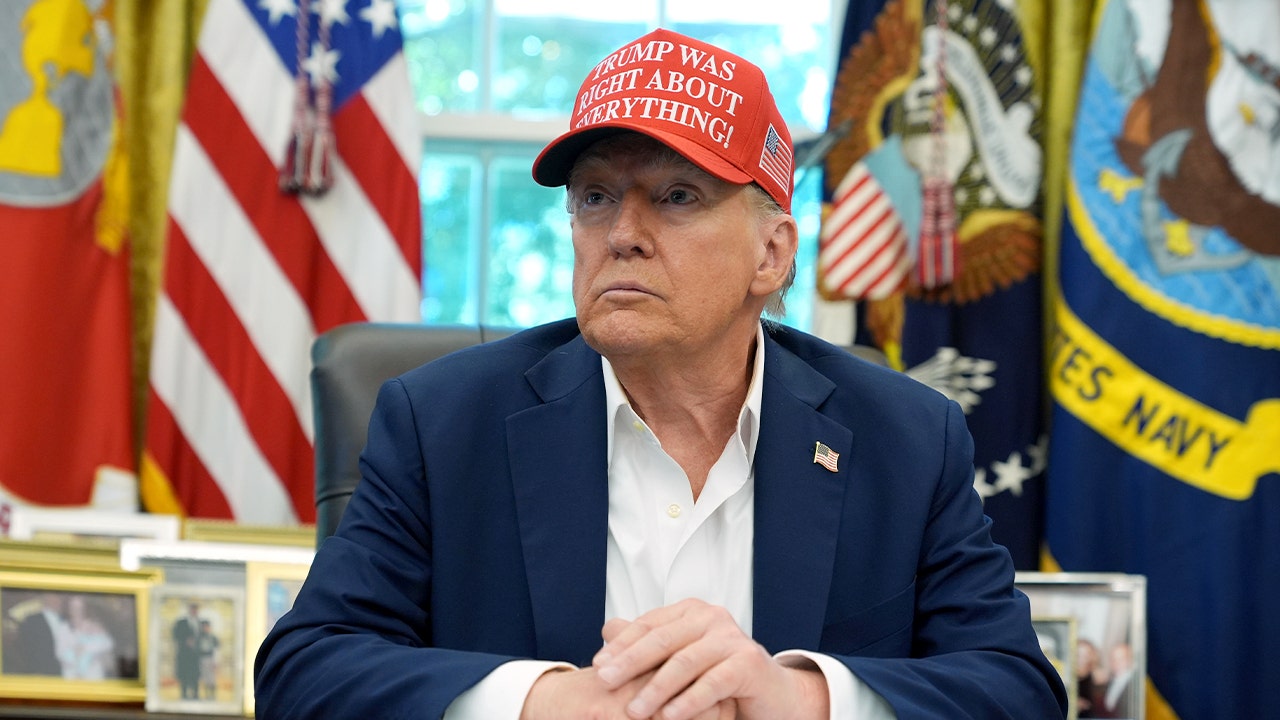Trump Hints Chicago Could Face Federal Crime Crackdown, Raising Constitutional Concerns
Washington, D.C. – August 22, 2025 – President Donald Trump has signaled that Chicago could be the next U.S. city to face a federal crackdown on crime, following his controversial takeover of Washington, D.C.’s police force and deployment of 2,000 National Guard troops in the nation’s capital. Speaking from the Oval Office on Friday, Trump stated, “We’ll straighten that one out, probably next, that will be our next one after this,” referring to Chicago, with New York City also mentioned as a potential target. The announcement, reported by CNN and Newsweek, has sparked debate over the legality and implications of such federal intervention, with Chicago Mayor Brandon Johnson and legal experts questioning Trump’s authority.
Context of the Crackdown
Trump’s remarks come amid his administration’s aggressive anti-crime agenda, which began with a federal takeover of D.C.’s Metropolitan Police Department on August 11, 2025, under the Home Rule Act, a power unique to the capital’s status as a federal enclave. The move, which included deploying 800 National Guard troops initially, was justified by Trump as a response to “out-of-control crime” and homelessness, despite D.C.’s violent crime rates hitting a 30-year low in 2024, per Justice Department data. Trump has claimed success, citing a week without murders in D.C. as a “miracle,” though such periods have occurred multiple times this year, according to Axios.
Chicago, long a focal point of Trump’s rhetoric on urban crime, was explicitly named as the next target, with the president calling it “a mess” and Mayor Johnson “incompetent.” The city reported 617 homicides in 2024, down 15% from 2023, with murders dropping 37%, robberies 36%, and motor vehicle thefts 44%, per Chicago Police data. Despite these declines, three fatal shootings on August 21, 2025, highlighted ongoing challenges, as reported by Fox News. Trump has also criticized Illinois’ no-cash-bail policy under the 2023 SAFE-T Act, calling it a “disaster” and vowing to end it, though he lacks direct authority over state law.
Legal and Constitutional Limits
Unlike D.C., where Trump invoked specific federal powers, the president’s ability to intervene in Chicago is limited. Georgetown law professor Steve Vladeck, speaking on PBS News, emphasized that D.C.’s unique status allows presidential control over its National Guard and police for 30 days without congressional approval, a power not applicable to states like Illinois. Any federal intervention in Chicago would likely require cooperation from state officials or extraordinary measures, such as invoking the Insurrection Act, which Trump has not explicitly proposed but has hinted at with references to deploying “regular military.”
Chicago Mayor Brandon Johnson, a freshman Democrat, has fiercely opposed the idea, stating, “I have never seen a president more off than Donald Trump,” and hinting at legal action to protect the city’s constitutional rights. Illinois Governor J.B. Pritzker, a vocal Trump critic, responded on X, saying, “You and I both know you have no authority to take over Chicago. By the way, where are the Epstein files?” Oakland Mayor Sheng Thao, whose city was also named by Trump, has similarly questioned the constitutionality of such threats, with her legal team analyzing potential responses.
Strategic and Political Implications
Trump’s focus on Chicago aligns with his broader narrative targeting Democratic-led cities, including Los Angeles, Baltimore, and Oakland, which he described as “very bad” and “so far gone.” Critics, including Oakland Councilmember Janani Ramachandran, argue that Trump’s rhetoric is fearmongering aimed at cities led by Black mayors, noting that crime rates are declining in these areas. Posts on X, such as from @AaronRupar, amplify concerns about Trump’s willingness to deploy military forces in American cities, framing it as a test of authoritarian tendencies.
The administration’s actions in D.C., including a surge of federal agents from the FBI, DEA, and Secret Service, have drawn mixed reactions. While Trump claims residents feel safer, D.C. Mayor Muriel Bowser called the intervention “unsettling and unprecedented,” and polls show most D.C. residents disapprove of federal troops, per CNN. Chicago’s proactive measures, such as targeted violence intervention programs and a $40 million investment in homeless shelters, suggest the city is already addressing crime, potentially undermining Trump’s rationale for intervention.
Economic and Social Context
The proposed crackdown comes amid economic challenges, with the July 2025 jobs report showing only 73,000 jobs added and a 4.2% unemployment rate, partly linked to Trump’s tariff policies. These economic pressures could exacerbate tensions in Chicago, where communities like Englewood face systemic disinvestment, as Johnson noted in a USA Today interview. Any federal intervention risks destabilizing local efforts, with experts warning of potential civil rights violations and community unrest, as seen in D.C. protests against National Guard deployments.
Conclusion
Trump’s hint at a federal crackdown on Chicago escalates his tough-on-crime agenda but faces significant legal and political hurdles. With crime rates declining and local leaders prepared to challenge federal overreach, the move appears more symbolic than feasible. As the administration pushes forward, possibly inspired by its D.C. strategy, the debate over federal authority versus local governance is set to intensify, with implications for civil liberties and urban policy nationwide.
For more details, visit CNN.com or ChicagoTribune.com.
